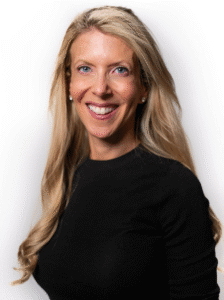The Conversations Parents Need to Be Having With Their Kids From The Very Beginning
While parents of young children receive anticipatory guidance on all manner of safety concerns for their children, recommendations on how to prevent sexual abuse are woefully absent from most parents’ experiences. Unfortunately, ten percent of children are sexually assaulted before they turn 18, making sexual abuse the most common serious threat that kids face. While it’s certainly never too late to start talking to kids about sexual abuse, and even young adults should be taking measures to protect themselves, speaking to children early and often is unquestionably the best approach. Taking initial steps with very young children to protect them from victimization lays a strong foundation for working together to learn and develop preventative strategies in the future.
BEGIN CONVERSATIONS EARLY
Many parents are intimidated by the prospect of talking to their children about sex, let alone sexual abuse, but the reality is that, like all other skill sets, people become more comfortable and more proficient with practice. For that reason, I encourage parents to start these conversations when their kids are literally babies and to begin with introducing the idea of bodily autonomy. Your body is for you and nobody else. When you’re giving your baby a bath, you mention how you’re giving them a bath, but there’s no reason for other adults to ask to see them without clothes on, or to be touching their bodies without clothes on, or for adults to be showing their adult bodies without clothes on. Of course, your baby won’t understand you, but it gives you practice starting these conversations, so that then it will feel more natural when they’re two and three and starting to really converse. It also sets a family norm that these are topics that your family discusses, so that then, as they get older and you start having more in-depth discussions about specific behaviors that they should be looking out for and how to respond, it won’t feel as if those conversations are coming out of nowhere.
TEACH BODY AUTONOMY AND TRUSTING THE INNER VOICE
Another early protective measure that parents can take is to encourage their children to learn to listen to their own inner voices. We want our kids to know that they should trust their instincts. This starts when they’re very young with not forcing them to show physical affection to anyone. The days of directing kids to go kiss their relatives need to be over, and it is completely appropriate for parents to push back against anyone who has that expectation for their children. Now, this can be uncomfortable for people who have a hard time setting boundaries with extended family because there can be a lot of worry around offending people. But while the discomfort is understandable, parents need to push back anyway. Perhaps relatives are offended; hopefully, they get over it, and if they don’t, that’s okay too. The last message that we want to be giving our kids is that they need to show adults physical affection on demand, or even worse, that they need to show physical affection to make other people happy. If a child’s inner voice is telling them that they don’t want to give someone a hug or a kiss, we need to encourage them to listen to that.
When you start paying attention to this phenomenon, it’s astonishing how frequently we give children messages that tell them that their inner voice is incorrect. And it’s done with good intentions. Kids fall and they cry, and we say, “You’re okay,” and what we mean is that they’re not seriously injured. But they’re not feeling okay, which is why they’re crying! A much better message to give a child who clearly isn’t feeling okay would be, “I bet that hurt and felt scary; let’s sit and I can hold you until you feel better.”
Another common way in which we try to silence children’s inner voices is by dismissing their fears. You see this with kids who fear dogs, especially. Adults tell them that there’s nothing to be afraid of and maybe even act annoyed by their fear. Well-intended dog owners are constantly telling scared kids how friendly their dogs are. The friendliness of the dog is completely irrelevant. Can you imagine telling a friend who was terrified of flying that planes are statistically very safe and then expecting him not to be afraid of flying anymore? We all know that anxiety doesn’t work that way for adults, and yet we tell our kids that their fear is irrational all the time. We need to be cognizant of not inadvertently telling our children that their inner voices aren’t reliable.
The reason why that matters is because we want our children to know from as young an age as possible that it’s okay to not do something just because it makes them feel uncomfortable, even if they can’t explain exactly why. That is a lesson that will serve them well throughout their lives. It’s completely acceptable to skip the sleepover, not get in the car, leave the party, not take the drink, decline an invitation, or end a date just because something doesn’t feel right about it. That’s listening to your inner voice, and we need to encourage it.
ADULTS DON’T ASK KIDS TO KEEP SECRETS
After teaching the concept of bodily autonomy starting from infancy, and helping our toddlers learn to trust their inner voices, the next step comes with teaching preschoolers that adults don’t ask kids to keep secrets. This is essential messaging that applies to children of all ages and is a concept that parents should continue reviewing with their kids throughout adolescence, but it can be introduced very early because it’s a critically important concept that kids of all ages can understand.
Children are almost always sexually abused by adults whom they know, and perpetrators require secrecy both to initiate abuse and for it to continue. While the details may vary, secrecy is always a through line in sexual abuse. So, if you just create a home environment where secrets between adults and kids are absolutely not allowed, you are already way ahead of the game in terms of protecting your kids.
The best way to frame it is that secrets are different from surprises. With a surprise, the recipient is expected to eventually learn of the surprise and be pleased. A surprise is bringing home balloons for daddy’s birthday. A secret, on the other hand, is something where the intention is for other people to never find out, and presumably, if they did, the secret could be expected to displease them. The best part about making this point that adults don’t ask kids to keep secrets, is that it works for kids of all ages. It is a truth that children can understand before they are in kindergarten that will still apply when they are in high school.
Of course, the sexual abuse of a child is terrifying for any parent to consider, and understanding the prevalence of sexual abuse only makes it more frightening. However, parents can feel empowered knowing they have all the tools they need to protect their kids at their disposal. Sexual abuse has persisted as an epidemic for far too long because it has remained in the shadows as an unspoken evil. Pedophiles have used our society’s baseline discomfort with talking about sex and our cultural shame and silence to their own advantage. But we can change that through education. By speaking to kids about staying safe at an age-appropriate level throughout childhood, we can protect them and teach them how to protect themselves.

ABOUT THE AUTHOR
Dr. Bronwen Carroll is a board-certified pediatric emergency medicine physician at Boston Medical Center and an Assistant Professor of Pediatrics at Boston University Chobanian and Avedisian School of Medicine. She graduated magna cum laude from Harvard College and received her medical degree from the University of Massachusetts Medical School, where she was inducted into Alpha Omega Alpha, the national medical honor society. After receiving her medical degree, Dr. Carroll completed a pediatrics residency at Massachusetts General Hospital and a pediatric emergency medicine fellowship at Boston Medical Center. She is a mother of four and an author, currently writing a book about how to talk to our kids about preventing sexual abuse. You can visit her website at bronwencarrollmd.com and follow her on Instagram at @bronwencarrollmd.
Cover Photo by Nataliya Vaitkevich
RELATED ARTICLES

